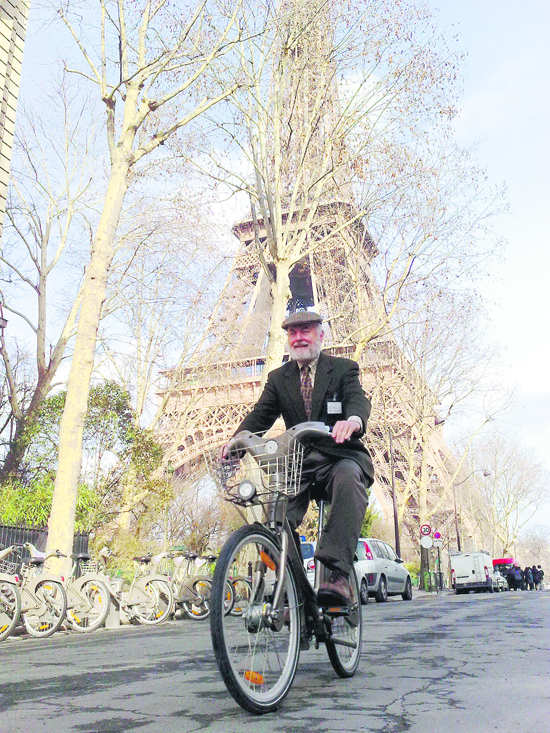
| ||||||
Shoup, described as a "parking rock star" by none other than the Wall Street Journal, asserts that most free parking is a mistake. "Ample free parking now is at the expense of the nation's future. It's just not sustainable." Drivers presume that because they don't pay to park that it really is free. Not so, in his opinion, "Somebody has to pay and that somebody is everybody."
By requiring developers to provide off-street parking, the cost of providing this parking is included in the cost of the development and passed on to customers through higher prices for goods and services.
For every land use under the sun, there is a parking requirement, from barbershops to grocery stores to a nunnery. Apparently nuns aren't very auto centric - requiring only one parking space per 10 nuns. In Lafayette 8,200 feet of parking area is required to build a 1,000 square foot church meeting hall. Shoup pointed out this 8 to 1 ratio and noted that it's not surprising cities look like they do - a sea of asphalt.
He proposes three reforms in parking policy: charge the right price for curb parking - the lowest possible price that leaves a few spaces open, second, return the meter money to the neighborhood that generates it, and finally reduce or remove off-street parking requirements. These policies can increase economic vitality and improve transportation by decreasing the number of drivers cruising the streets looking for a free spot.
Old Pasadena was used as an example of a success story - at one time it was seedy and rundown. Reluctant residents and businesses finally accepted the idea of paying for parking when promised that all the revenue raised would be put back into the neighborhood where the meters were installed. That meter money was spent by the city of Pasadena to install new sidewalks, plant trees, re-pave, increase police services and more. Once the improvements started to be made, land owners saw an increase in value of their property and started renovating and updating. Now Old Pasadena is a destination with vibrant shops and restaurants which translates into markedly higher sales tax revenue.
Agree or disagree, the entertaining discussion was food for thought for the many residents and City Planners that filled the Community Hall. Professor Shoup's presentation is just one example of the distinguished experts in their respective fields that Lafayette Library and Learning Center will be hosting. On March 4, historian Marjorie Schwarzer will talk about what museums did during the Great Depression to uplift and inspire communities. Stay tuned to the library website for other events, wwwccclib.org.
Reach the reporter at:
Copyright
